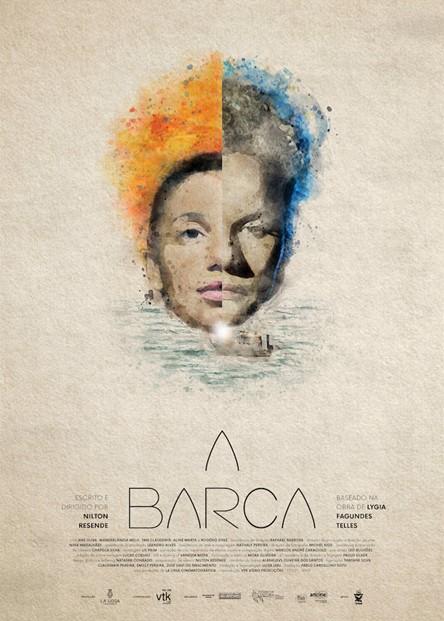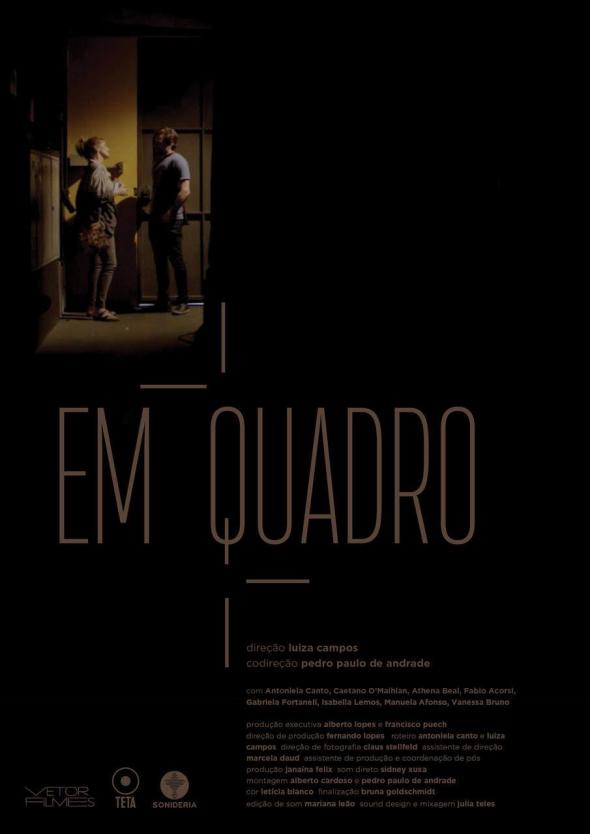Plateau 2020: Afro Cinema, Protest Storytelling and the Year of the Great Pandemic
This year’s Cine Plateau — Cape Verde International Film Festival was held as a Special Online Edition between November 26th and 29th in Praia, Cape Verde Islands. Despite the many programming, curating, financial, and logistical barriers faced by independent film festivals in a pandemic year, the organization pulled together in the end, and dove head-first into a fully online format, with synchronous broadcasts on Facebook Live, available internationally.
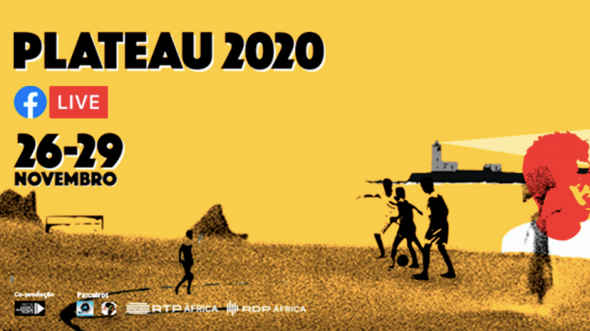
This is no small feat. In a year that has been complicated in pretty much every measure — public health, ongoing massive industry changes, as well as social, political, and economic upheavals — the mere choice of being, of willing small events into existence is nothing short of heroic. And so, for five days, Plateau 2020, the little festival that could, not only existed but was also available to a wider audience than ever before, through an endless network of small digital screens spread all over Africa and the world.
Despite a scheduling model which favoured single synchronous screenings, for commercial reasons two features and two shorts fell by the wayside last minute, prevented from screening online without strict geoblocking in place. This has proved to be an ongoing sticky issue for filmmakers, film festivals and distributors across the industry, all through this year. It’s a stark reminder of the unsettling effects the COVID-19 pandemic has had in an industry whose distribution models were already facing disarray, disassembling, and reassembling prior to the pandemic, with a rush of new actors challenging the status quo.
As an independent producer and director, I had the immense honour to join this year’s jury as one of its three jurors — alongside Suely Neves, a festival director at the similarly named CVIFF, and Patricia Silva, a theatre producer. As a Cape Verdean filmmaker whose current focus is African and Afro-Diasporic storytelling, the honour was not lost on me.
The programming was overwhelmingly dominated by Portuguese-language films, particularly socially engaged stories from Brazil, in a show of force which demonstrated that its cultural sector has not only survived the burden of the Bolsonaro years but is coming out swinging 2-3-6-5 combos with a vengeance. Other countries represented included Portugal, Mexico, Mozambique, Mali, Burkina Faso, Senegal, and of course Cape Verde.
In the jury, we decided to use this year’s excellent crop of films to award not only the awards traditionally bestowed by the festival but also a handful of special prizes and honourable mentions. For this, we offered the following official rationale, both on why we attributed the extra bling, but also on why we enthusiastically applauded this year’s programming choices.
“In the context of a global pandemic, worldwide protests, and socio-political upheavals, 2020 launched the world into a whirlpool of events unheard of for generations. The Jury recognizes, on the one hand, the profound impact such events have had on the international film industry. Notably, with the impoverishing and rarifying of cultural spaces such as film festivals, or their limitation to online platforms, which affects indie filmmakers’ real capacity to express themselves publicly, to produce, and perhaps more fundamentally, to launch into the market films which oftentimes emerge from years of unpaid effort.
This situation has obvious consequences, such as the absence of public validation, the lack of visibility and monetization of their careers, and diminished cultural and political platforms. On the other hand, the Jury also recognizes that, this year in particular, the voices and the civic engagement of artists and filmmakers have been more relevant than ever. In a year in which public discourse was initially centred around COVID-19, but soon broadened to include a questioning and realignment of racial equity, women’s empowerment, and the rights of LGBTQI2S+ people, the Jury saw it fit to actively manifest its pleasure with the diverse and inclusive programming of Plateau - Praia International Film Festival.
We underline the powerful presence of directors, voices, and stories frequently marginalized in the mainstream. The Jury also seeks to demonstrate its support for these bold programming choices, for the visibility of filmmakers’ careers, and for the importance of public discourse on these issues, by deliberately creating space for the recognition of film work with intrinsic social and political value, in particular where women’s narratives and Black, African and Afro-Diasporic storytelling are concerned. Therefore, the Jury of Plateau 2020 has decided to exceptionally award a set of Honourable Mentions to four Brazilian shorts (two fiction films and two documentaries) that made unquestionable contributions to the enrichment of the public understanding of these subjects and underline the essential nature of Brazil’s artistic sector in global public discourse.
The Jury congratulates the Plateau 2020 team, and all the filmmakers — whether or not they’ve been awarded — for their dedication, artistic achievements, and the profound value they add to society. This has been a tough year, and their work has made it more manageable.”
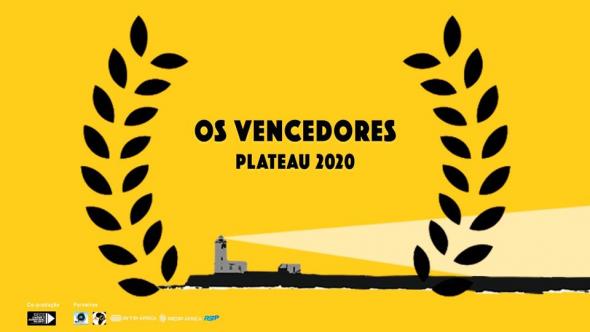
With this said, the awards were thus:
Best Documentary Short
Luís Humberto: A Possible Portrait (O Olhar Possível) (Brazil | 2019 | 20 mins.), from directors Mariana Costa and Rafael Lobo. A poetic, intimate portrait of the life and work of the aging and apparently debilitated documentary photographer Luís Humberto, who in-between the lines reveals stories that pre-date Brasilia’s hallways of power. A former architect, he was there when the city was built, and now looks at it from a different angle.
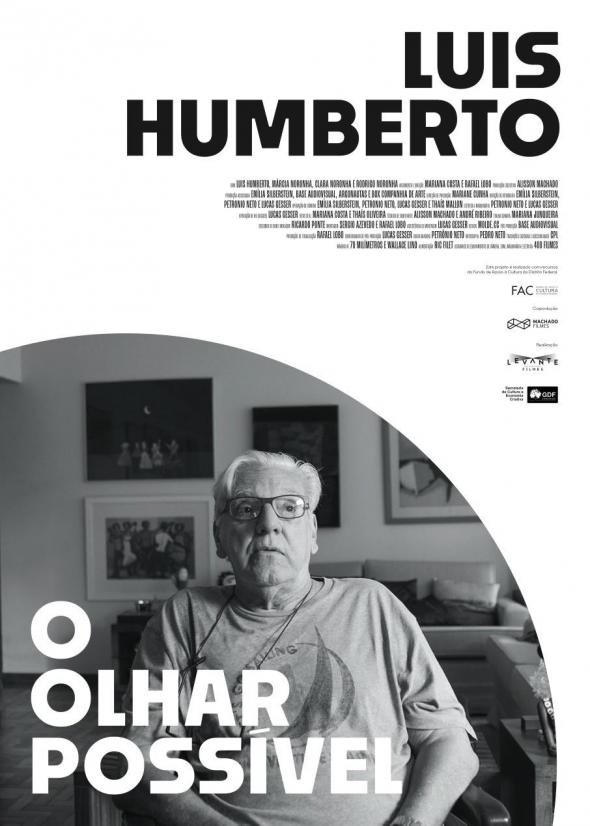
Best Fiction Short
Neguinho/Blackie (Brazil | 2020 | 20 mins.), from director Marçal Vianna. A harrowing, heartbreaking, yet tender look at the institutional racism suffered by Black children in the country’s schools. Based on a true story, it takes the viewer on an emotional journey through the complexities of race and class mobility in a country at odds with itself.
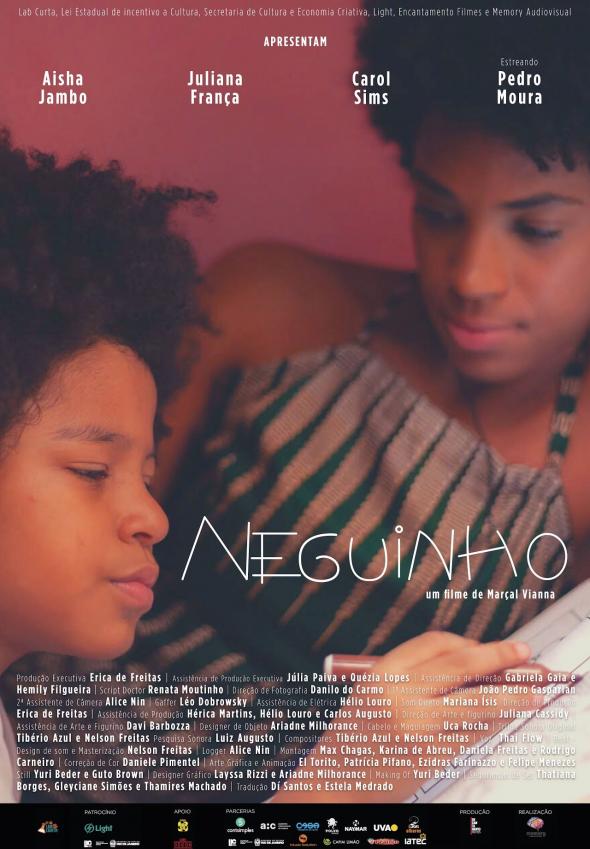
Best Documentary Feature & National Newcomer Award
Manuel D’Novas - Heart of a Poet (Manuel D’Novas - Coração de Poeta) (Cape Verde | 2020 | 120 mins.), from local amateur director Neu Lopes, incidentally the son of the title’s Manuel D’Novas, the islands’ most prolific composer. Synonymous with the music that conquered international stages on the voices of stars such as the late Cesária Évora and Bana (or Mayra Andrade in recent years), this somewhat longwinded classic music history doc offers a generous glimpse at Cape Verdean identity-formation, and at how it intertwined it is with the man’s own biography.
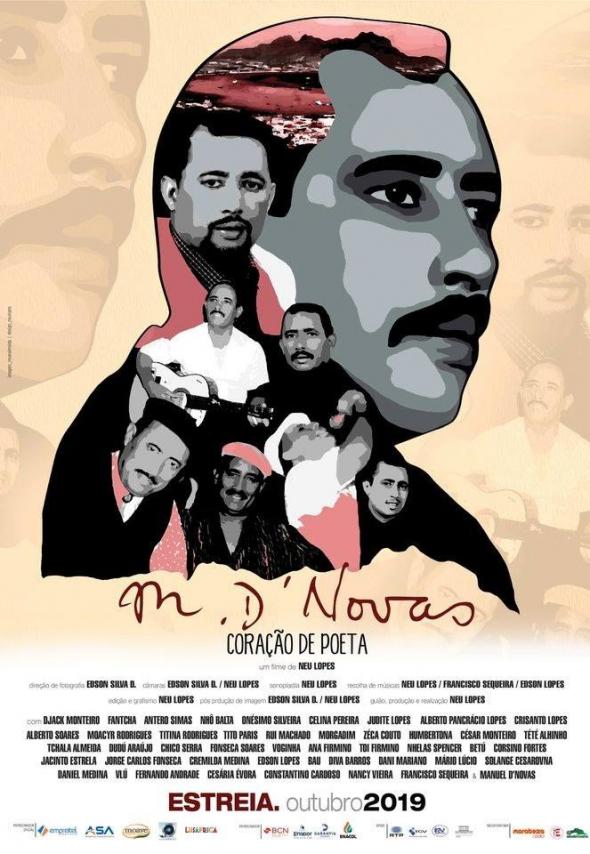
Best Feature Film
Granma Nineteen and the Soviet’s Secret (Avó Dezanove e o Segredo do Soviético) (Portugal, Brazil, Mozambique | 2020 | 94 mins.) of veteran Mozambican director João Ribeiro. Based on the book by the same name, by Angolan writer Ondjaki, this whimsical international co-prod is set in Angola but, in Ribeiro’s own words, “could be in Mozambique too.” In a little seaside village, shortly after independence, the construction of a presidential mausoleum threatens the permanence of an old neighborhood, setting the local children on a path to wipe it out. Lest you forget the Cold War setting, characters – including, hilariously, the children – repeatedly address each other as “Comrade”.
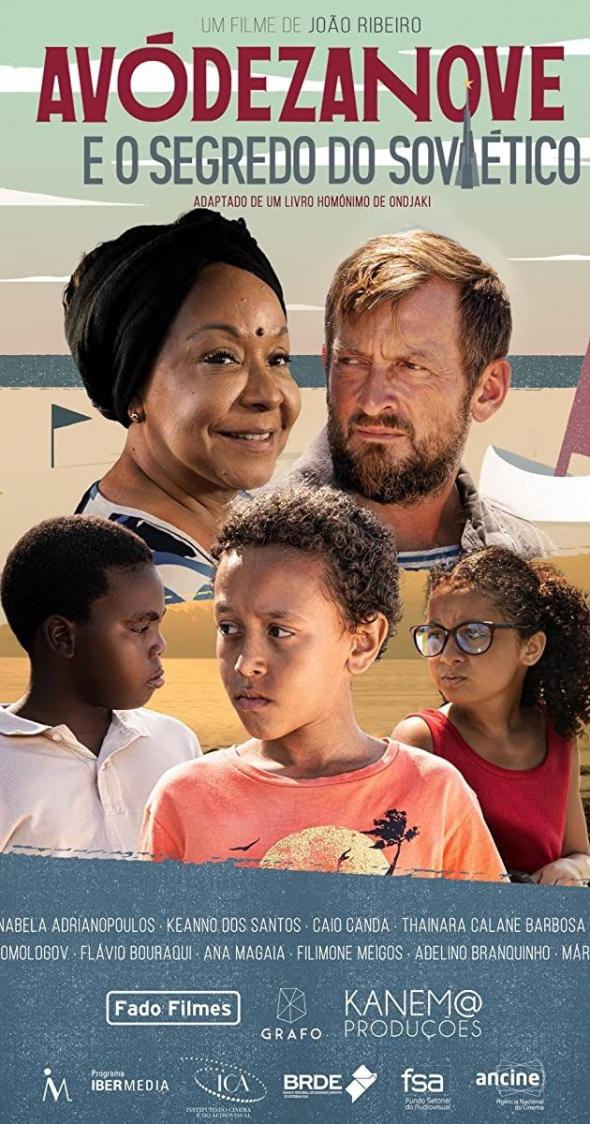
Jury’s Special Prize
Mia Couto: I’m the Author of my Name (Mia Couto: Sou Autor do Meu Nome) (Portugal | 2019 | 52 mins.), of veteran Swedish-Portuguese director Solveig Nordlund. Adding to the director’s previous work portraying equally famous writers such as J.G Ballard, Marguerite Duras, Richard Zimmler, and António Lobo Antunes, this film is a personal voyage through the life and work of the renowned Mozambican author.

Honourable Mentions (Documentary), Ex-Aequo
To Be Happy On The Landing* (Ser Feliz No Vão) (Brazil | 2020 | 12 mins.), of director Lucas H. Rossi dos Santos, is an experimental “Black essay about trains, beaches, and the occupation of space.”
An Extraordinary Force (Uma Força Extraordinária) (Brazil | 2019 | 24 mins.), of director Amandine Goisbault, is an incredibly poignant and intimate fly-on-the-wall film about a couple’s journey from pregnancy to (natural) birth, and about motherhood.
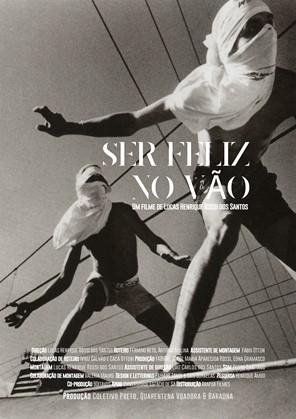
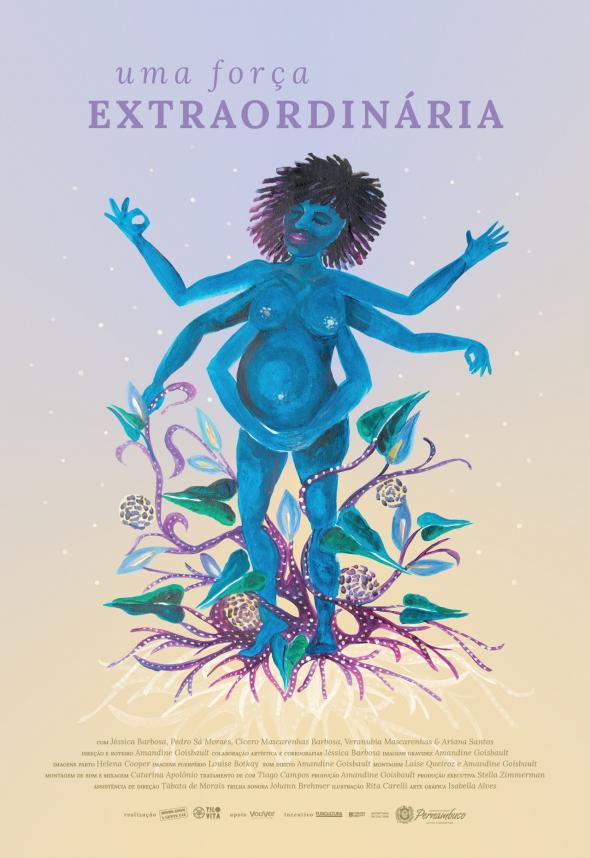
Honourable Mentions (Fiction), Ex-Aequo
The Ferry (A Barca) (Brazil | 2019 | 19 mins.), of director Nilton Resende. Based on Lygia Fagundes Telles’ Christmas tale, this film is a self-contained gem of Shakespearean theatre, portraying a conversation by two women who share a journey through a dark, cold lagoon.
On Set* (Em Quadro) (Brazil, 2020 | 11 mins.), of directors Luís Campos and Pedro Paulo de Andrade. On a film set, simple gazes, gestures, and words invade and opress. Chastising the bystander syndrome, this simple yet efficient film packs a mighty punch, offering a powerful commentary on the pervasiveness of sexual harassment in the film industry.
